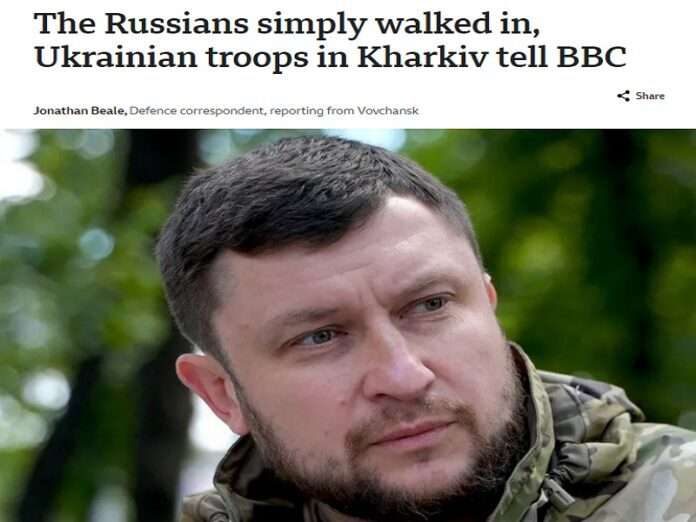BBC published a report over the weekend about how “The Russians simply walked in, Ukrainian troops in Kharkiv tell BBC”, citing special reconnaissance commander Denis Yaroslavsky. According to him, “There was no first line of defence. We saw it. The Russians just walked in. They just walked in, without any mined fields. Either it was an act of negligence, or corruption. It wasn’t a failure. It was a betrayal.” Here are three background briefings to familiarize the reader with this subject before proceeding:
* 2 December 2023: “Ukraine Is Bracing For A Possible Russian Offensive By Fortifying The Entire Front”
* 28 February 2024: “The Ukrainian Intelligence Committee Is Preparing For The Worst-Case Scenario”
* 18 March 2024: “Putin’s Talk Of Setting Up A ‘Sanitary/Security Zone’ In Ukraine Hints At A Potential Compromise”
To summarize, Zelensky ordered the armed forces late last year to prepare for a new Russian offensive sometime during this one, which the Ukrainian Intelligence Committee predicted less than three months ago could occur in May or June. President Putin then warned in mid-March that his country could carve out a buffer zone in Ukraine to stop the shelling of nearby Russian cities and cross-border raids against neighboring regions. Russia’s fresh push into Kharkov Region therefore clearly wasn’t a surprise.
This makes it all the more shocking though that its forces “simply walked in”, after which it made such progress in the span of just a few days that Kiev panicked by replacing the senior commander responsible for defending this front. No personnel changes can rewind the clock and build the border fortifications that Zelensky assumed were constructed by now. Kharkov is Ukraine’s second-largest city, so if it was left largely undefended, then other less significant border ones are probably undefended too.
Russia might therefore expand its incipient Kharkov offensive to neighboring Sumy Region if that’s indeed the case, thus exacerbating Ukraine’s already dire conscription and logistics crisis to the point of collapse in an attempt to achieve a decisive military breakthrough for finally ending this conflict. It’s unclear, however, whether Russia would attempt to enter Ukraine once again from Belarus after La Repubblica claimed earlier in the month that this could trigger a conventional NATO intervention.
Russia wants deter that from happening, but if it’s not successful, then it at least wants to ensure that NATO troops remain west of the Dnieper. That’s why it announced tactical nuclear weapons exercises last week in order to showcase its associated potential for destroying any large-scale NATO invasion force that tries to cross that river en route to directly clashing with Russia on its borders. Since the Kremlin has a track record of self-restraint, it might therefore eschew the Belarusian option, at least for now.
Shoigu’s replacement as Defense Minister by professional economist Belousov lends credence to the abovementioned assessment since the latter is unlikely to consider the hoped-for benefits of once again entering Ukraine from Belarus to be worth the reported risks. President Putin could always overrule him as the Commander-in-Chief, but if there were any credible indications that he was considering anything of the sort, then Western satellites would have already presumably captured proof of the preparations.
For that reason, observers shouldn’t expect a redux of early 2022’s Belarusian-originating offensive, especially since video evidence from January suggests that this front isn’t anywhere near as undefended as Kharkov Region’s border was. Instead, it’s possible that Russia’s incipient Kharkov offensive could expand to neighboring Sumy Region to re-open the northeastern front in order to facilitate a breakthrough across the Donbass and Zaporozhye ones for expelling Kiev from Russia’s new regions.
It remains to be seen whether that’ll happen, but the BBC’s candid report about how Russia simply walked into Ukraine’s Kharkov Region despite half a year of allegedly building border fortifications there proves that it can’t be ruled out either. As Ukrainian special reconnaissance commander Yaroslavsky told them, “Either it was an act of negligence, or corruption. It wasn’t a failure. It was a betrayal”, which might go down in the history books as one of the Russian special services’ greatest achievements.







